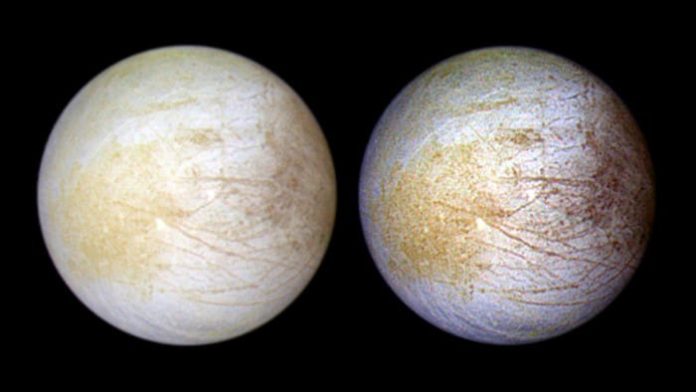Researchers have proposed an ambitious plan for future space exploration, which involves sending autonomous underwater vehicles to Europa, the icy moon of Jupiter, to search for signs of life in its subsurface ocean.
This detailed plan, outlined in Science China Earth Sciences, describes how specialized submarines known as Extraterrestrial Autonomous Underwater Vehicles (Exo-AUVs) could penetrate Europa’s thick ice shell and explore its ocean depths, potentially uncovering conditions suitable for microbial life.
A Three-Part Exploration System
The proposed system consists of a carrier vehicle for ice penetration, a survey submarine for long-range exploration, and an observation module for detailed investigation. This multi-vehicle approach would allow scientists to study Europa’s ocean at various scales, from large regions to minute details.
Drilling Through an Alien World
The carrier vehicle would utilize either a Small Modular Reactor or Radioisotope Thermal Generator for power to bore through Europa’s icy shell, which could reach depths of tens of kilometers. The pressure at Europa’s ocean depths could be twice that of Earth’s Mariana Trench.
Two Types of Underwater Explorers
The exploration system includes two specialized submarines: a survey vehicle with foldable wings for long-distance travel, and an observation module with a disc shape and multiple thrusters for detailed examinations. The larger survey submarine would serve as a transport and charging station for the smaller observation unit.
Searching for Signs of Life
The submarines would carry various scientific instruments, such as acoustic sensors, cameras, and tools for chemical and biological analysis, enabling them to search for potential biosignatures indicating past or present life at different scales.
Meeting the Challenges
Operating in Europa’s environment presents unique challenges such as intense radiation and communication delays due to the vast distance from Earth. The submarines would require sophisticated autonomous systems to navigate, collect samples, and make decisions independently.
Building a Network
If the initial mission yields significant discoveries, the researchers propose launching additional systems to create a network of explorers spanning Europa’s global ocean for comprehensive mapping and investigation of potentially habitable environments beneath the ice.
Looking Forward
This study marks a crucial step in planning how humanity might explore Europa’s ocean to answer the profound question: are we alone in the solar system? The research provides a roadmap for future missions to explore icy worlds like Europa and Enceladus in the quest for extraterrestrial life.
If you found this information valuable, please consider supporting our work with a small one-time or monthly donation. Your contribution helps us continue delivering accurate, insightful science and medical news you can trust. Independent reporting requires time, effort, and resources, and your support allows us to keep uncovering important stories. Together, we can ensure essential discoveries and advancements reach those who need them most. Thank you for helping us share knowledge and spark curiosity!




